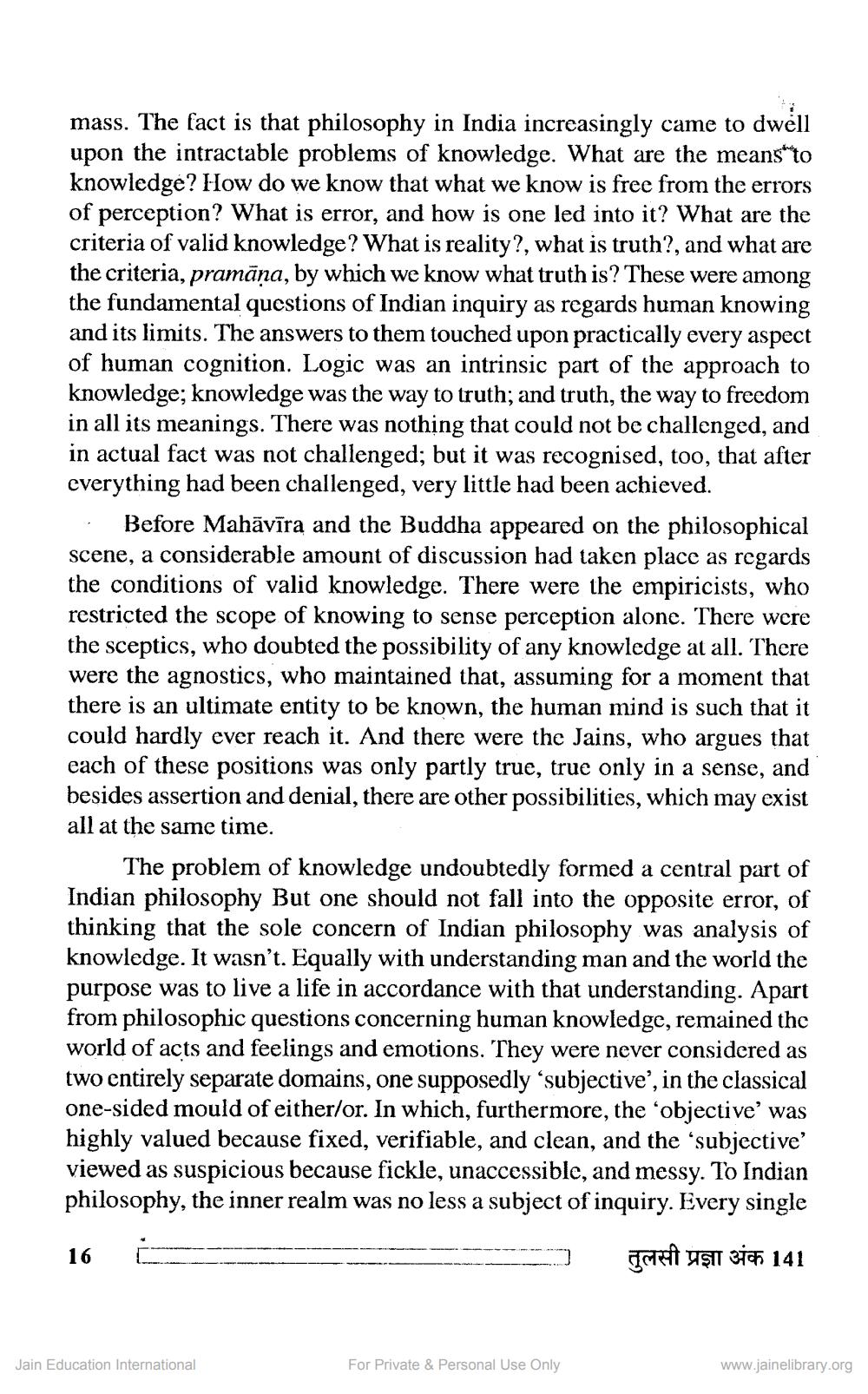________________
mass. The fact is that philosophy in India increasingly came to dwell upon the intractable problems of knowledge. What are the means to knowledge? How do we know that what we know is free from the errors of perception? What is error, and how is one led into it? What are the criteria of valid knowledge? What is reality?, what is truth?, and what are the criteria, pramāna, by which we know what truth is? These were among the fundamental questions of Indian inquiry as regards human knowing and its limits. The answers to them touched upon practically every aspect of human cognition. Logic was an intrinsic part of the approach to knowledge; knowledge was the way to truth; and truth, the way to freedom in all its meanings. There was nothing that could not be challenged, and in actual fact was not challenged; but it was recognised, too, that after everything had been challenged, very little had been achieved.
. Before Mahāvīra and the Buddha appeared on the philosophical scene, a considerable amount of discussion had taken place as regards the conditions of valid knowledge. There were the empiricists, who restricted the scope of knowing to sense perception alone. There were the sceptics, who doubted the possibility of any knowledge at all. There were the agnostics, who maintained that, assuming for a moment that there is an ultimate entity to be known, the human mind is such that it could hardly ever reach it. And there were the Jains, who argues that each of these positions was only partly true, true only in a sense, and besides assertion and denial, there are other possibilities, which may exist all at the same time.
The problem of knowledge undoubtedly formed a central part of Indian philosophy But one should not fall into the opposite error, of thinking that the sole concern of Indian philosophy was analysis of knowledge. It wasn't. Equally with understanding man and the world the purpose was to live a life in accordance with that understanding. Apart from philosophic questions concerning human knowledge, remained the world of acts and feelings and emotions. They were never considered as two entirely separate domains, one supposedly 'subjective', in the classical one-sided mould of either/or. In which, furthermore, the objective' was highly valued because fixed, verifiable, and clean, and the subjective' viewed as suspicious because fickle, unaccessible, and messy. To Indian philosophy, the inner realm was no less a subject of inquiry. Every single 16 i
geeft uşit sich 141
Jain Education International
For Private & Personal Use Only
www.jainelibrary.org




